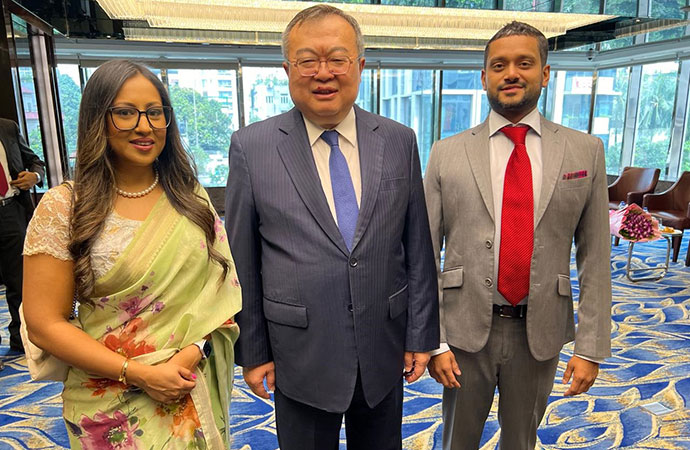Featured 1

Freepik
China has been involved in financing and helping to build some of the most important megaprojects in Bangladesh's infrastructure sector in recent years, including the Padma Multipurpose Bridge and the Karnaphuli Tunnel, and numerous other projects. During Chinese President Xi Jinping's landmark visit to Dhaka in 2016, more than 20 agreements were signed by the two sides for further cooperation on a number of mostly infrastructure projects. Yet the most significant outcome of that visit was that President Xi and Bangladesh Prime Minister Sheikh Hasina agreed to elevate the bilateral relationship to a 'strategic partnership'.
Now as we look forward to Prime Minister Hasina's visit to Beijing next month, it is within the ambit of that elevated status that the present relations between Dhaka and Beijing must be viewed, and future cooperation envisioned. Since 2016, we have seen the two sides step up cooperation in the important field of defence - most notably with the induction of two Chinese submarines as part of Bangladesh's naval fleet, followed by the recent inauguration of the country's first ever submarine base, the BNS Sheikh Hasina, that has been built with Chinese help. Bilateral trade between the two nations crossed the billion-dollar mark for the first time in 2004. It has risen exponentially in the intervening years, and despite being somewhat halted by the pandemic that blighted economic performance in both countries in 2020 and 2021, China today remains firmly established as Bangladesh's number 1 trading partner, with two-way trade amounting to $24 billion.
According to data from Bangladesh's Commerce Ministry, which is leading the negotiations on behalf of Dhaka towards the signing of a possible Free Trade Agreement between the two countries, Bangladesh exported goods to China worth $677 million and imported goods worth $22.90 billion in the 2022-23 fiscal. Although that reflects a lopsided trade deficit in favour of Beijing, it is hoped that the successful signing of an FTA can spur greater exports of Bangladeshi goods to China. We note that the current Chinese envoy in Dhaka, who is obviously playing a leading role in these negotiations on behalf of his country, recently cited the examples of Mauritius and Cambodia, whose exports to China witnessed double-digit growth following the signing of their respective FTAs with Beijing. We wish the negotiators from both sides the best in working out a similar "win-win" agreement for Dhaka and Beijing.
Since initiating market-based reforms in 1978, China has witnessed what the World Bank terms "the fastest sustained expansion by a major economy in history", that has seen more than 850 million people lifted out of poverty. Although the rate of growth in China has eased in recent years, even a relatively sedate growth rate of 6% per year would still make it the most powerful engine of economic growth in the world for decades to come. Their example contains worthwhile lessons to bear in mind for any nation on the road to progress and development. We know that the Chinese people have a dream, as touched upon by visiting minister Liu Jianchao in Dhaka this week. So do we in Bangladesh, as we endeavour to achieve our goal of middle-income status. Let us hope these aspirations find the fulfilment we seek through sensitive and principled bilateral cooperation.

























Leave a Comment
Recent Posts
Auspicious beginnings, but a l ...
The newly elected government of Bangladesh is now in office, and the e ...
Caught between tigers and pira ...
Over 10,000 fishermen in the Sundarbans have suspended their fishing a ...
Historic Chawk Bazar comes alive with iftar items on ..
Shaping Young Conservationists: School Conservation ..
Iran has said it has reached an understanding with t ..
New Finance Minister Amir Khosru Mahmud Chowdhury